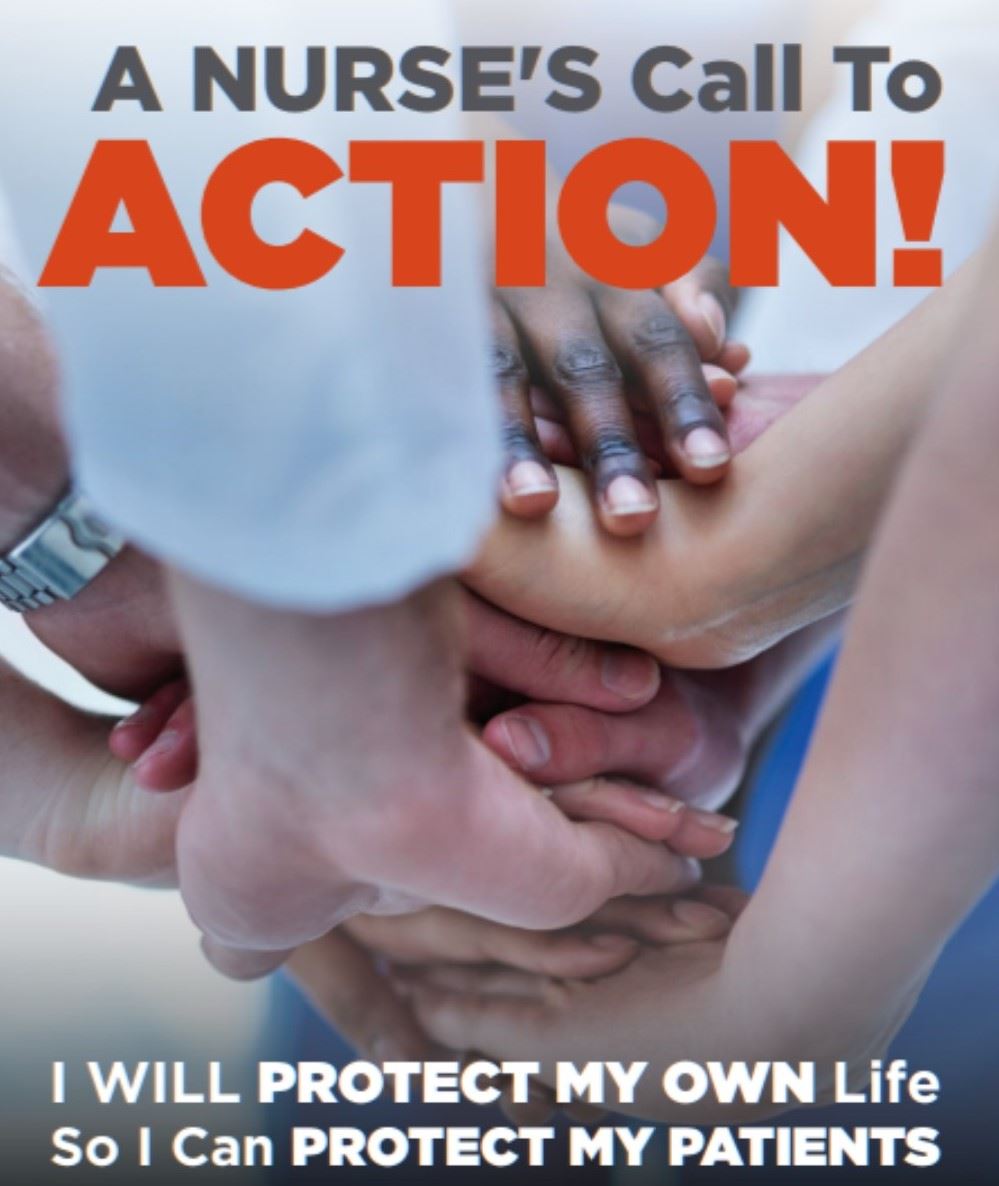| Protect YourselvesProtect Your Patients#endnurseabuseSupport :: Educate :: Take Action :: Share The American Nurses Association (ANA) convened a professional issues panel to develop policy and identify strategies to address barriers to nurses and other health care workers reporting violence and abuse, and to strengthen 'zero-tolerance' policies. EndNurseAbuse.org |
Related ResourcesANA position statement: Incivility, Bullying, and Workplace Violence CNE offering: CDC Workplace Violence Prevention for Nurses Downloadable Graphics: Preventing Bullying poster and Civility Best Practices poster PACERS Civility Tool-kit Preventing Workplace Violence in Healthcare: The strategies and tools presented in this section are intended to complement OSHA's Guidelines for Preventing Workplace Violence for Healthcare and Social Service Workers. The Guidelines describe the five components of an effective workplace violence prevention program, with extensive examples. Workplace Violence: Includes recommendations for establishing a violence prevention program. |
Workplace Violence

The Delaware Nurses Association conducted a survey of registered nurses in 2014 in an effort to examine the perception of violence against nurses. Results from the study indicated that 41.41% of respondents felt that their patients’ family members, friends, and visitors were more prone to commit a violent act against them and 27.75% felt that violent acts could come from patients themselves.
The most prevalent type of violence in the workplace, as indicated by 58.15% of survey respondents, is patient-on-worker violence which includes any type of verbal or physical assault (i.e. patient or patient’s family member assaults nurse on duty).
National Institute for Occupational Safety and Health (NIOSH) classifies this type of violence as Type II Customer/Client and is defined as “customer/client relationship to include patients, their family members, and visitors” (Centers for Disease Control and Prevention, 2016). A majority of Delaware respondents were employed in a hospital/acute care setting (68%) followed by the ambulatory care population at 10.13%. Research shows that Type II violence occurs most frequently in emergency settings and waiting rooms but is not limited to these settings.
According to the DNA survey, what is compounding the problem is the lack of civility shown to nurses by patients and their families. Negative side effects of incivility include decrease job satisfaction and personal health which may lead to reasons for nurses to leave or plan to leave the profession.
Federal standards do not require workplace violence protections though some states have sought legislative solutions including mandatory establishment of a comprehensive prevention program for healthcare employers, as well as increased penalties for those convicted of assaults of a nurse and/or other health care personnel (American Nurses Association, 2016).
DNA supported Delaware House Bill 214, which made it an assault 2nd degree, class D felony, to intentionally cause physical injury to an ambulance operator, a rescue squad member, licensed practical nurse, registered nurse, paramedic, or licensed medical doctor while such person is performing a work-related duty.
References
American Nurses Association. (2015, July 22). Position Statement on Incivility, Bullying, and Workplace Violence. Silversprings, MD: American Nurses Association.
American Nurses Association. (2016, February 03). Workplace Violence. Retrieved from American Nurses Association: http://www.nursingworld.org/MainMenuCategories/Policy-Advocacy/State/Legislative-Agenda-Reports/State-WorkplaceViolence
Centers for Disease Control and Prevention. (2016, January 12). Workplace Violence Prevention for Nurses. Retrieved from http://wwwn.cdc.gov/wpvhc/Course.aspx/Slide/Unit1_5
Joint CommissionSentinel Event Alert 59: Prevention Recommendations |

